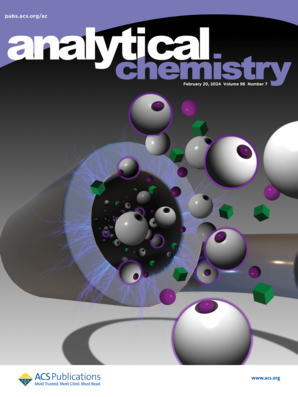Spatiotemporally Resolved Approach for Profiling Ferroptosis-Associated Metabolic Vulnerabilities in Tumors Using Mass Spectrometry Imaging and Stable Isotope?…
Abstract
Ferroptosis, as an iron-dependent cell death mediated by lipid peroxidation, has sparked great interest in the tumor research community. Targeting ferroptosis has been proven to be a new therapeutic opportunity for inhibiting tumor growth. However, it is challenging to precisely characterize the metabolic pattern of ferroptosis in heterogeneous tumors and further identify ferroptosis-associated metabolic vulnerabilities for tumor treatment. In this work, we developed a spatiotemporally resolved method to image ferroptosis-associated metabolic alterations in 3D tumor spheroids by combining mass spectrometry imaging and stable isotope tracing techniques. The construction of a 3D tumor spheroid model allows for a more accurate simulation of ferroptosis, and the introduction of MALDI-MSI enables in situ screening of abnormal molecules in tumor tissues. Using this method, we showed that the expression proportion of nC═C = 4 polyunsaturated fatty acids, including arachidonic acid (FA-20:4) and adrenic acid (FA-22:4), were upregulated in RSL3-induced 3D tumor ferroptosis models. And the isotope tracing experiment revealed that the absorption of fatty acids and the biosynthesis of polyunsaturated fatty acids were significantly increased during ferroptosis. In addition, we discovered that arachidonic acid and adrenic acid supplementation render tumor cell sensitive to ferroptosis, thereby limiting the growth of tumor cells and the formation of 3D tumor spheroids. Such findings provide significant clues for understanding the metabolic signatures of tumor ferroptosis and raise the possibility to screen potential metabolic vulnerabilities for better tumor treatment in combination with ferroptosis.





